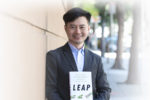
In recent years, the number of workers in the US who show up to work by turning on an app on their smartphone has dramatically increased. Dubbed on-demand or “gig” workers, these individuals log onto digital platforms and depend on algorithms, rather than managers, to set pay rate, segment work tasks, and supervise and evaluate their actions while on the job. Researchers have sounded alarms about the “encompassing, instantaneous, interactive, and opaque” (Kellogg et al., 2020) nature of such algorithmic management, concluding that it traps workers in an “invisible cage” (Rahman 2021). And yet, many on-demand workers report enjoying management by algorithms, enthusiastically noting the freedom that comes with this type of app-based work. Indeed, data from the Federal Reserve and Bureau of Labor from the past five years indicate a tight labor market alongside an increase in the number of workers in the on-demand economy (Kaplan et al., 2021; Katz & Krueger, 2016; 2019), suggesting that on-demand workers may not experience the work to be as oppressive as some scholars have suggested (Rosenblat, 2018; Ravenelle, 2019; Shapiro, 2018). Moving beyond money as the sole explanatory mechanism of why individuals work hard at their jobs, especially under less-than-ideal conditions, this study takes seriously how on-demand workers describe and value finding freedom and choice in their jobs. In doing so, I identify the limitations of the “carrots and sticks” metaphor that scholars have long used to describe the production of consent in the traditional workplace. Instead, I examine how algorithmic management, in conjunction with the new work arrangements of the gig economy, creates consent through the notion of workers having increased choices—a form of consent that, I argue, is more pervasive, but also more fragile.…Read More









